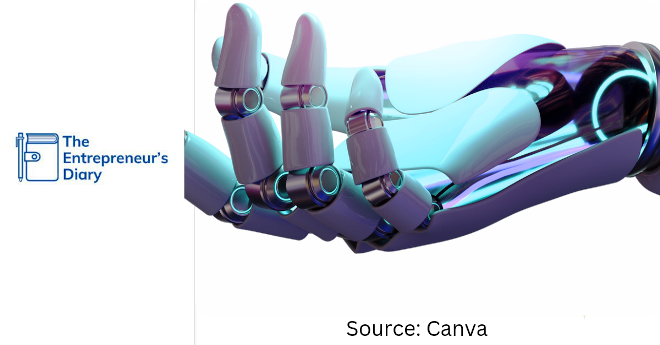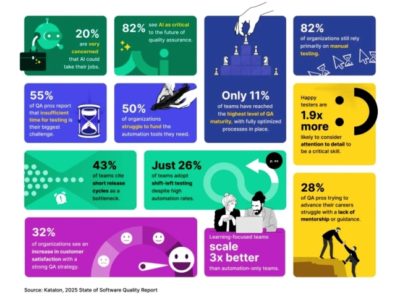The rapid development of artificial intelligence (AI) technologies has generated excitement and curiosity around its potential to revolutionize various industries.
RELATED: Global summit on AI takes action to ensure artificial intelligence benefits humanity
However, as AI becomes more integrated into our societies, it is essential to consider the ethical implications of its use. In fact there are a number of issues that are increasingly becoming a thing of concern – even worry – especially in Africa.
Bias in AI
One of the most pressing ethical challenges in AI lies in the potential for bias within algorithms. AI systems learn from vast amounts of data, and if this data is biased or reflects societal prejudices, the AI can perpetuate and even amplify these biases. AI systems are only as good as the data they are trained on.
However, since data is often generated by humans, it can reflect the human biases and prejudices. This means that AI systems trained on biased data can perpetuate and amplify societal biases. For example, face recognition algorithms have been found to have higher error rates for people of color, which can have significant consequences if these systems are being used in law enforcement or security screening.
To address this challenge, organizations are implementing measures to detect and mitigate bias in AI systems. For instance, data scientists can use techniques like data augmentation or oversampling to generate representative data. Additionally, organizations can create diverse teams that can identify and address potential biases during the development and deployment of AI systems.
Data Privacy concerns
The use of AI equally raises significant concerns about data privacy. AI systems often require vast amounts of data to function optimally, including personal information like age, gender, location, and shopping habits. The collection and use of this data can impact individual privacy rights and can even lead to harms like identity theft or discrimination.
As AI applications become more sophisticated, it becomes crucial to ensure that individuals’ personal information is adequately protected and used only for intended purposes. Striking a balance between data utility and privacy is vital, and regulatory frameworks must be strengthened to safeguard user information from misuse. Organisations must put in place measures to protect the data from unauthorized access, and ensure that they get explicit consent before collecting data.
Job Displacement
One major concern about AI technologies is it’s potential to lead to job displacement and a shift in workforce requirements. AI systems are now capable of performing certain roles traditionally done by humans, and can automate other tasks that were previously performed by humans, resulting in the displacement of workers from certain industries or job roles.
A responsible approach involves anticipating and preparing for these changes, offering retraining programs and investing in education to equip the workforce with skills that complement AI technologies. Moreover, AI can also create new job opportunities in the development and maintenance of these technologies. Governments around the world should look more into investing in infrastructure and education policies to support the transition to a post-AI workforce.
Transparency and Explainability
The “black-box” nature of some AI systems, particularly in deep learning, raises ethical issues related to transparency and explainability. As AI is increasingly integrated into critical decision-making processes, stakeholders demand transparency about how AI arrives at its conclusions. Lack of transparency can lead to distrust, hinder AI adoption, and obscure potential biases. Developers must prioritize building AI systems that are interpretable and provide clear explanations for their decisions.
Accountability and Responsibility
With AI becoming more autonomous, questions arise about accountability and responsibility when AI systems make mistakes or cause harm. Determining who is liable for AI-related accidents or decisions can be complex, especially in cases where AI operates without human intervention. It is crucial to establish a framework for holding individuals, organizations, or even AI itself accountable for the actions and consequences of AI technology.
Ethical Governance and Regulation
To ensure responsible AI use, robust governance and regulation are essential. Governments, industries, and research institutions must collaborate to establish clear guidelines and ethical standards for AI development and deployment. These regulations should encourage innovation while safeguarding against potential misuse or harm.
Dual-Use Dilemma and concerns about Responsible Usage
AI technologies can have both civilian and military applications, raising the dual-use dilemma. While AI can be beneficial in areas like healthcare and disaster response, it also has the potential to be weaponized and pose significant threats to global security. Striking a balance between beneficial and harmful uses of AI requires international cooperation and agreements to prevent the development of AI technologies solely for destructive purposes.
There is a need to ensure that AI systems are used in transparent and ethical ways that are aligned with public interests.
The development of national or international guidelines and laws that govern the use of AI can help ensure that AI systems are used in safe and ethical ways. Additionally, companies can involve stakeholders and users from diverse backgrounds in designing and testing AI systems to ensure that they meet the needs of all users.
Conclusion
The deployment of AI technologies presents significant ethical challenges that must be addressed. Ensuring the responsible use of AI, addressing issues of bias, protecting data privacy, and mitigating job displacement are essential considerations that organizations and governments must take into account. By taking proactive measures to address these challenges, society can enjoy the benefits of AI and ensure that it is deployed in ways that are transparent, equitable, and ethical.
Striking a balance between innovation and ethics is the core of all proactive measures that are required at this point.



































